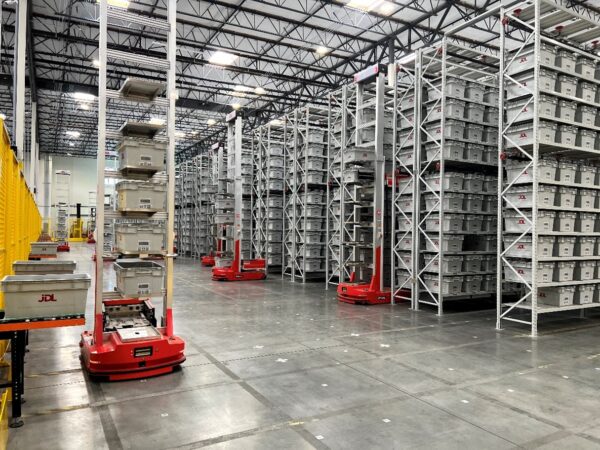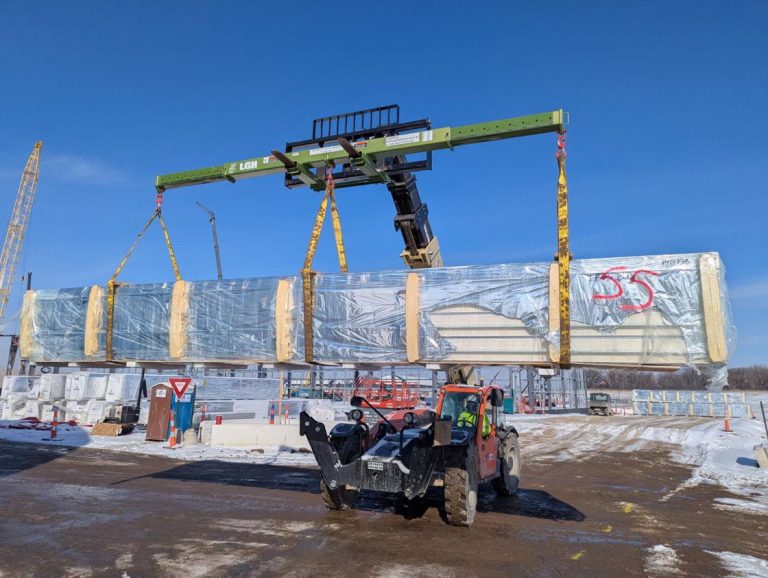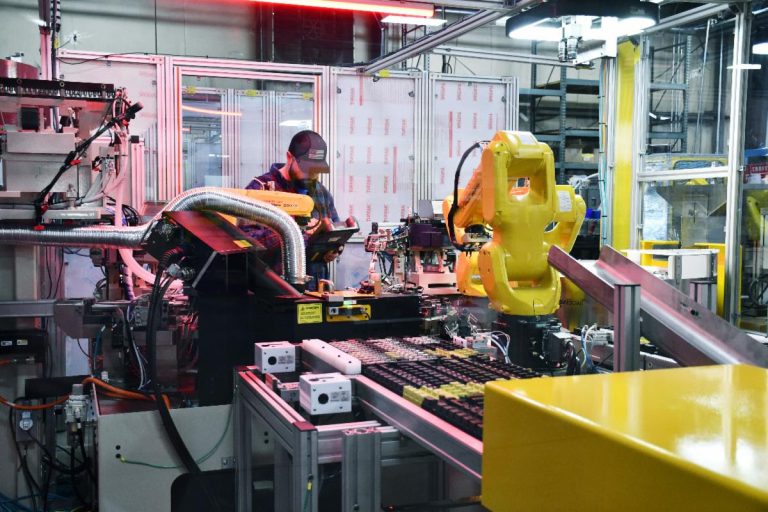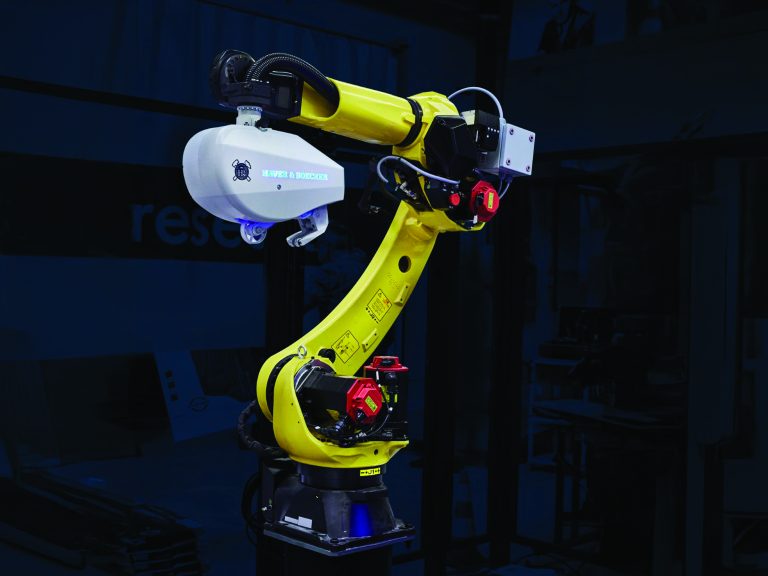Hai Robotics US, the recent winner of the MHI Innovation Award for Best Innovation of an Existing Product, is making more waves in the American warehousing and manufacturing markets.
As a result of market research and evaluating lessons learned from the last recession, Hai Robotics has developed strategic programs that flip exceptions of business development in a recession on its head. The company developed programs that allow facilities to leverage times of economic uncertainty to their advantage through strategic warehouse automation and planning that situate companies for accelerated advancements when markets stabilize.
In a slow market, many companies typically increase cash balances to fund operations. As a result, we often see reduced budgets and delays in buying large capital expenses, but the need for automation does not slow down. Companies still face staffing concerns, operating costs still need to be reduced, inventory management and loss prevention need improvements, and business security is always front of mind.
COVID provided many lessons on how to manage warehousing and facility development in economic uncertainty and how to reduce risk of entry in those times. Back in 2020 – 2021, many businesses held off purchasing facility automation. Then, when those businesses returned to their automation advancement plans after the initial COVID recession, material and automation equipment backlogs were at an all-time high. Lead times were pushing 12+ months for certain solutions. Businesses that were desperate to speed up their automation plans that were already delayed by spending pause were then facing further delays due to everyone jumping in at the same time.
 In comparison, the facilities that had already started to implement automation before or through the pandemic were, in some cases, now over a year ahead of their competition in operational advancement. These companies also had automation, or the foundations of a large-scale automated solution in place, making them better situated to manage the labor shortage and surge of consumer demand that followed.
In comparison, the facilities that had already started to implement automation before or through the pandemic were, in some cases, now over a year ahead of their competition in operational advancement. These companies also had automation, or the foundations of a large-scale automated solution in place, making them better situated to manage the labor shortage and surge of consumer demand that followed.
Knowing that facilities will someday again need to navigate economic uncertainty while developing business, Hai Robotics evaluated the needs of companies in times of uncertainty and established automation solution options that turn recessions into periods of strategic growth through their pilot programs.
The company’s automated storage and retrieval system (ASRS) is “material agnostic,” meaning it provides automated storage systems created out of almost any industry standard racking and containers. As a result, the system inherently has a lower price point than many comparative options and provides system flexibility not common in ASRS – allowing for simplified expansions and maintenance. For many companies, this also means installing a larger system with lower cost and lower risk, adding business security in times of economic uncertainty.
Hai Robotics is offering pilot systems consisting of 1 or 2 robots, racking & totes, 1 workstation, software that includes host interface, implementation, and staff training, as well as a co-developed roadmap for future expansion, for a total price point less than $250,000 USD.
These systems allow companies to gain immediate benefits from automation while laying the foundation necessary for smart facility updates with low risk and low cost. Facilities are able to make adjustments necessary for all automated advancements with a smaller system, laying the foundation for strategic growth:
- Familiarize the facility and workers with the technology, hardware, and equipment
- Set up the software interfaces and base code
- Establish operational workflows and trainings
Currently, with a pilot program from Hai Robotics, systems can be implemented in 6 months or less, allowing for more immediate operational security. Each system is designed with an understanding of the anticipated growth for that business, making system expansions simpler and with a lower price point at each stage of growth. This breaks up the costs of a full-scale solution, so companies only pay for what is needed as they need it.
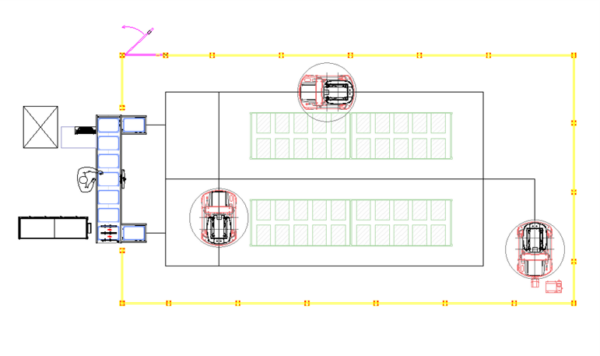 When asked about the pilot programs, Brian Reinhart, VP of Sales, Marketing, and Solutions at Hai Robotics US, replied, “We’re excited to help our customers begin their automation journey in a low-risk environment. We’ve been touting the technology’s flexibility a lot recently and this is another avenue to prove that value to the market. We’re committed to maintaining and supporting a low-cost point of entry and speed to market, two critical elements for those just beginning their adoption of automation.”
When asked about the pilot programs, Brian Reinhart, VP of Sales, Marketing, and Solutions at Hai Robotics US, replied, “We’re excited to help our customers begin their automation journey in a low-risk environment. We’ve been touting the technology’s flexibility a lot recently and this is another avenue to prove that value to the market. We’re committed to maintaining and supporting a low-cost point of entry and speed to market, two critical elements for those just beginning their adoption of automation.”
Customers are seeing the benefits of this scalable solution and are experiencing the value in the simplicity of its ability to expand.
“We have a big space, but we don’t want to buy too much upfront.” Adam Womble, Co-Founder of Avenue Shops stated, “The flexible nature of Hai’s system and the ease to add more rows of racking and robots made it the better system for us.”
Avenue Shops, a full-service apparel sourcing, storage, and distribution facility that supports thousands of women’s fashion boutiques around North America, purchased a pilot system at the end of 2022 that reduces their storage footprint to 30% of the original space, increases storage height by 4x, and improves operator order fulfillment speed by 3-4x. As the business continues to grow, the system is designed to expand.
Companies that utilize time when the markets are slower to implement pilot systems that set up the foundation for larger-scale automation can find themselves months, or even a year+ ahead of companies that chose to hold off all together until markets rebound.
To know more about Hai Robotics’ pilot programs, contact info.us@hairobotics.com.

